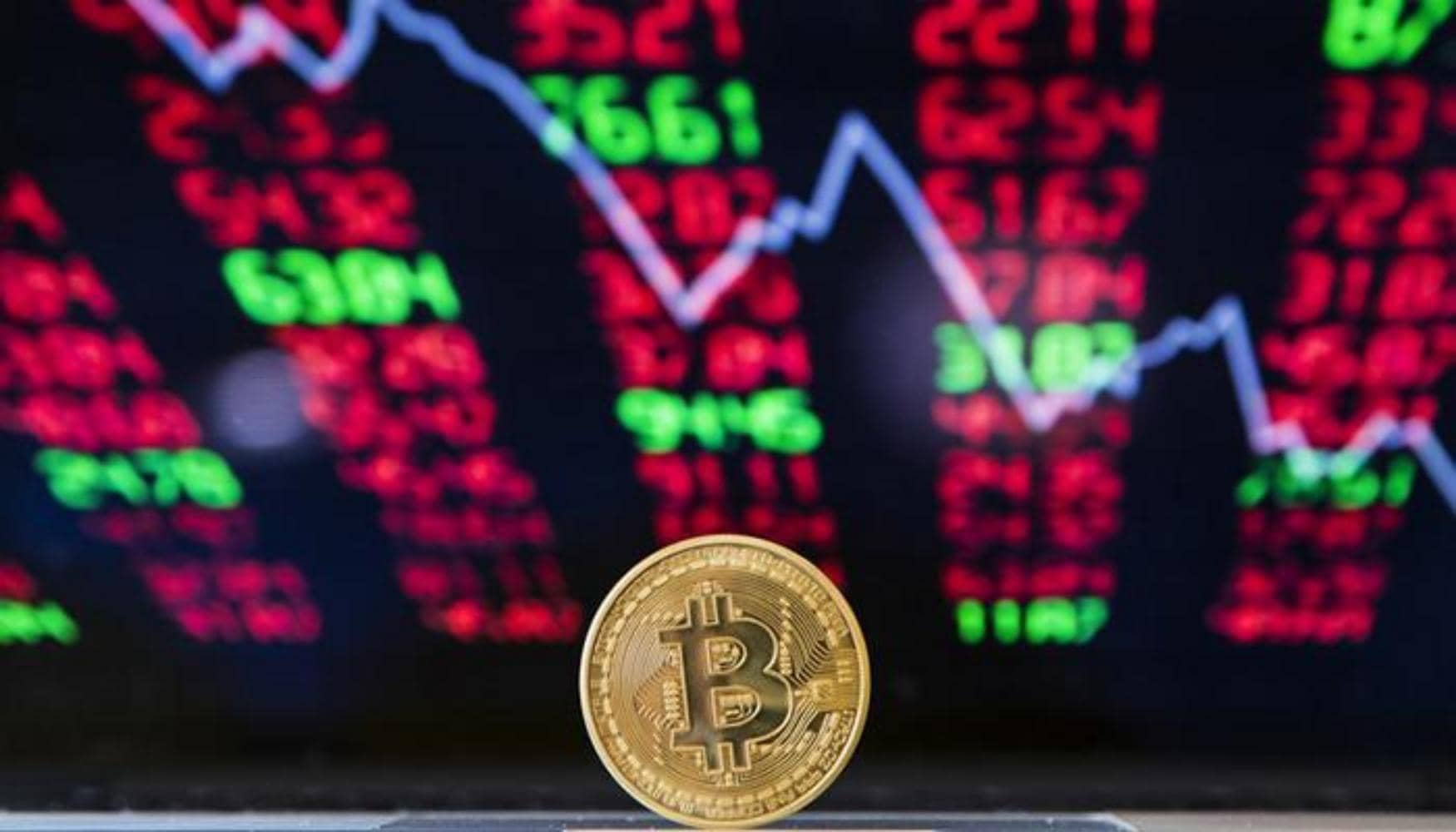Содержание
Uniswap, SushiSwap, PancakeSwap, Kyber, and Balancer are among the most popular decentralized exchanges today, but there are many alternatives as well. In June 2020, Compound Finance started rewarding lenders and borrowers with cryptocurrencies, in addition to typical https://xcritical.com/ interest payments to lenders, units of a cryptocurrency called COMP. This token, which is used for running Compound, can also be traded on cryptocurrency exchanges. You know a financial topic is trending when it lands in Fortune or the Wall Street Journal.
Decentralized Crypto Exchange Hashflow Raises $25M at $400M Valuation – CoinDesk
Decentralized Crypto Exchange Hashflow Raises $25M at $400M Valuation.
Posted: Thu, 21 Jul 2022 07:00:00 GMT [source]
To better understand the use cases for each exchange, it’s important to highlight the key differences between the two. These days, although CEXs remain the dominant force in the crypto space, DEXs are picking up steam and becoming far more used thanks to their attractive features and functionalities. A big CEX makes its money from having enough fiat and assets in reserve to let you make instantaneous deposits and withdrawals. If you want to swap your BTC for USD, for instance, you would expect to be able to do that in seconds with a CEX…or you’d take your custom elsewhere.
In a nutshell, it ensures the value of each reserve stays constant even as the ratios of the assets in the liquidity pool change. To initiate a trade within a centralized exchange you first have to deposit the funds that you want to trade which are then held in custody by the exchange. After you have deposited funds with the exchange your account balance is credited by the amount you deposited and you are eligible to make a trade. Another possible explanation is economies of scale, an important mechanism for DEXs. Implementing KYC protocols builds trust amongst users, as it demonstrates a layer of protection. Even if the user ultimately does not know who the other person is when they conduct a transaction, there is a certain peace of mind that comes from knowing that the exchange does know.
No Kyc
Coinbase’s position as an intermediary between buyers and sellers of cryptocurrency allows it to profit any time a user completes a transaction. Other cryptocurrency exchanges like Crypto.com, Gemini, Kraken, Binance, and Bitstamp make money in exactly the same way — as do traditional stock exchanges and brokerages. The XRP Ledger has possibly the world’s oldest decentralized exchange (sometimes abbreviated “DEX”), operating continuously since the XRP Ledger’s launch in 2012.

The Internal Revenue Code nor any IRS publication imposes a “physical possession” requirement on the holding of cryptos in a cold wallet in the IRA owner’s personal possession. This website is using a security service to protect itself from online attacks. There are several actions that could trigger this block including submitting a certain word or phrase, a SQL command or malformed data. Tick SizeIssuers can set custom tick sizes for currencies to reduce churn in order books over miniscule differences in exchange rates. In this example, only 22 FOO.WayGate are available at the requested rate or better. The network calculates the exchange rate of Tran’s Offer, by dividing the amount to buy by the amount to pay.
As it stands, we are now in a tug-of-war between central banking and decentralized finances. The future of funding is happening now — choose wisely where you put your money. Decentralized governance for a decentralized exchange, built on top of Bitcoin. UniSwap runs on the Ethereum blockchain, which means there is no central authority; the code runs the show. On a broad level, the UniSwap community governs the project’s direction, using the UNI token as a voting token. What Gemini does offer is a platform that can cater to beginning investors or advanced traders.
Our Top Picks For Cefi & Defi Cryptocurrency Exchanges
As a result, when a transaction is ready to be put on a decentralized exchange, you must pay a gas cost in order for your trade to be confirmed via blockchain, which can be expensive depending on the chain. One of the most apparent benefits of a decentralized exchange is cutting out the middlemen and executing peer-to-peer transactions without central authorities. Trading on centralized exchanges is based on the Order Book model, where buyers and sellers place orders. While buyers try to buy an asset at the lowest price possible, sellers try to sell it for as high as possible to earn maximum profits. For the trade to occur, both buyer and seller have to agree on the price. Decentralized exchanges make a direct trade between two non-custodial wallets possible, with little to no instructions from a third party.

With scalability improvements and ETH 2.0 on the horizon we think the future is bright for decentralized exchanges. Order book DEXs like dYdX and Dex Blue operate similarly to centralized exchanges where users can place buy and sell orders at either their chosen limit prices or at market prices. Now that we have established how centralized exchanges work let’s look at decentralized exchanges and how the two differ from one another. Safely & securely manage your assets on the XRP Ledger blockchain without jeopardizing your digital assets by connecting your preferred wallets.
If, for instance, the Ether collateral backing a Compound loan drops in value, the Compound protocol would need to liquidate the Ether in order for the protocol to stay solvent. In exchange for filling these pools with cryptocurrencies, LPs collect transaction fees on any trades that use their liquidity. In September 2020, when centralized exchanges supported below 50% of on-chain volume for the first time. DEX dominance then reached its peak in June of 2021; that month, DEXs facilitated more than 80% of on-chain transaction volume. Today, their share of on-chain volume is more evenly split, with 55% happening on DEXs and 45% on CEXs.
Crypto Exchanges Faq
That’s one of the benefits of using and investing in cryptocurrencies. Every DEX crypto is intended to bring the benefits of decentralization to crypto buying, selling, and portfolio management. Serious traders are encouraged to keep an independent cryptocurrency wallet to deposit any coins they aren’t actively trading. This is because you could lose all your digital assets if the exchange is hacked. The following trading platforms are all excellent options, especially for newer traders.
- Uniswap users pay a slightly higher fee to liquidity providers, but that difference is mitigated by Sushi having an extra fee to reward all SUSHI holders.
- The majority of cryptocurrency traders are concerned with trading charges.
- The only exception to this rule is when a decentralized exchange is integrated into a wallet like Argent or Authereum, which offers fiat deposits through a partnership with a payment processor.
- The Basics of Reading Charts Covered If you are new to crypto trading and learning how to read crypto charts, this is the right place.
Crypto exchanges are platforms where users can trade digital currencies for other assets, including cryptocurrencies like Bitcoin , Ethereum , Litecoin , and regular currencies, like U.S. Despite having broken into the mainstream, crypto can still be a confusing subject for investors of all levels. What are the different types of exchange and how do they differ from crypto wallets? Read our guide to understand the ins and outs of cryptocurrency exchanges.
If you are willing to buy one Ether for $200 and there is a seller willing to sell one Ether at that price the two orders will be matched and executed. My account will be credited with 1 Ether and debited $200 and the sellers account will be debited by one Ether and credited $200. Uniswap Governance offers grant funding for people building apps, tools, and activities on the Uniswap Protocol.
How Does A Centralized Crypto Exchange Work?
In 2019, over $290 million worth of cryptocurrencies were stolen and over 500,000 login information were leaked from centralized exchanges. Similarly, there is a common perception amongst the public that decentralized exchanges are only used by criminals due to the anonymity that DEXs provide. News headlines like “Criminals have made off crypto decentralized exchanges with over $10 billion in ‘DeFi’ scams and thefts this year” do little to help that perception. Requiring identity verification reduces the appearance that the space is only used by criminals, and works to rehabilitate the image of the industry. Namely, how will decentralized exchanges react if and when governments begin to regulate them?
Both publications have begun covering decentralized cryptocurrency exchanges, or DEXs, the attention-getting services that promise to give users and investors more control over their crypto funds. Decentralized exchanges, known as DEXs in the crypto space, serve primarily as facilitators that allow buyers and sellers to talk to each other. Alongside reducing or eliminating middleman fees, a DEX offers a form of added security because buyers and sellers do not have to give their information to any 3rd party. Decentralization prevents trading volume and price manipulation and improves the ability of users to remain anonymous. The main difference between centralized and decentralized exchanges is who is in control of the funds.
Deep Dive Into Perpetual Protocol V2
A Short History of Cryptocurrencies The globe holds nearly 2 billion consumers who lack access to banking services. Cryptocurrencies could allow each of them to participate in financial life. This text is informative in nature and should not be considered an investment recommendation. Any investment or trading is risky, and past returns are not a guarantee of future returns. Financial advisors recommend that if you invest in cryptocurrency, practice caution and keep it below 5% of your total investments.
Decentralized exchanges are, by nature, designed to facilitate transactions between peers. But when you don’t know who the other individual is, it’s difficult to fully trust them because there’s no way of tracking the transaction if you are taken advantage of. This potential for fraud scares many potential DEX users away from signing up in the first place. For this reason, many industry experts believe that it’s only a matter of time before decentralized exchanges find themselves subject to such regulations.
Although you’ll be responsible for securing, backing up, and managing your own funds, independent digital wallets are a much safer alternative for safeguarding the bulk of your crypto. The exchange offers the largest selection of currencies among all the companies on our list — over 250 coins. Similarly, the centralized exchange holds your personal safety, also known as your wallet.
